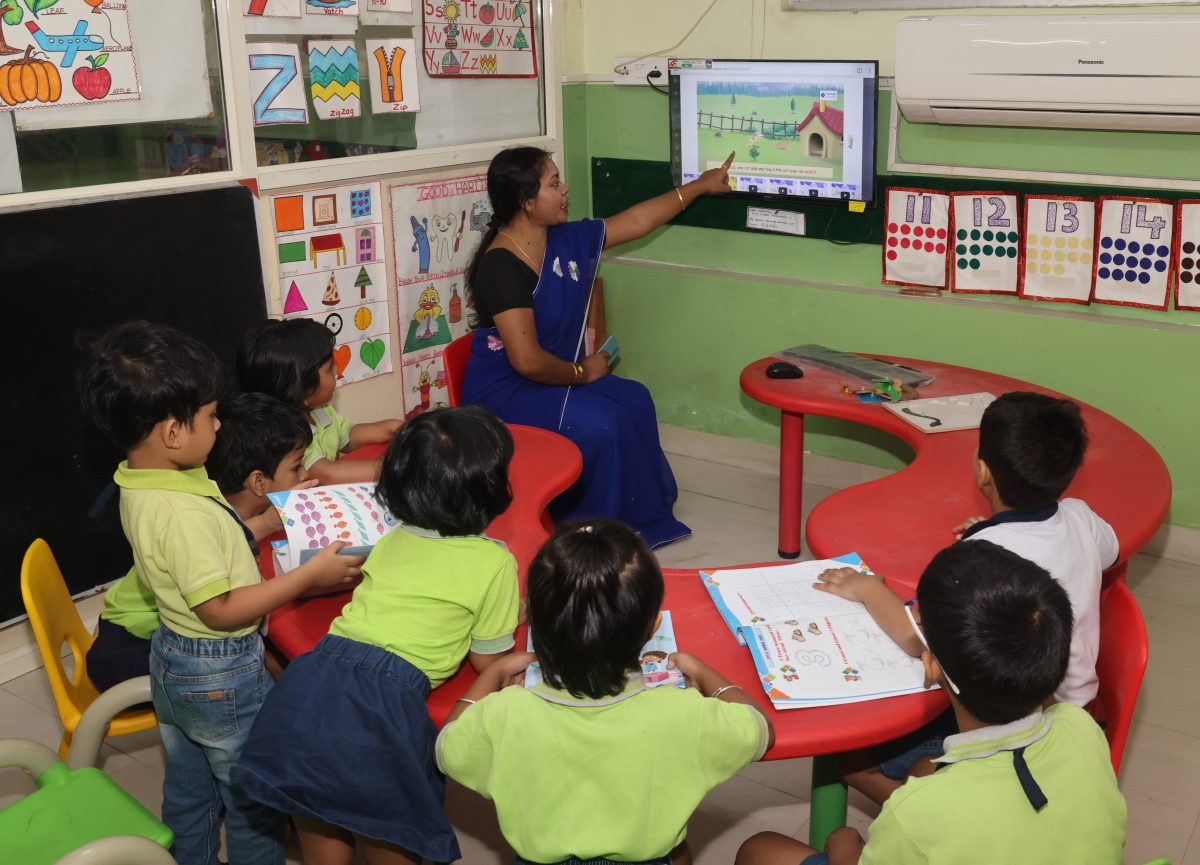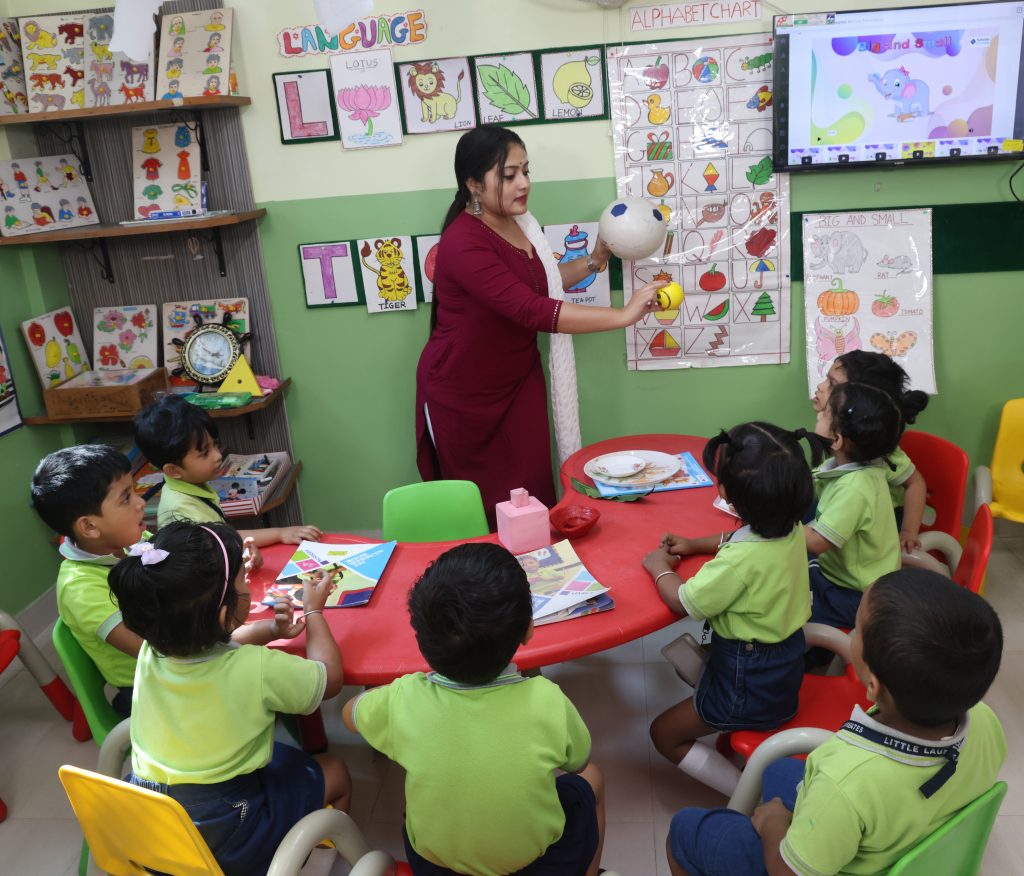
Transforming Foundational Education with Flexible Class Modes
In today’s world, flexibility is crucial, especially in early childhood education. Nalanda Learning, a leader in early childhood care and education (ECCE), recognizes this and offers classes in online, offline, and hybrid modes. This blog explores these class modes, their implementation, necessity, and benefits.
Understanding the Different Class Modes
Online Classes: Online classes are very popular today. Nalanda allows students to access interactive lessons, educational videos, and engaging activities from home. This mode offers convenience, flexibility, and accessibility, ideal for busy parents and children. Online classes also help children familiarise with digital tools.Offline Classes: Traditional classroom settings remain invaluable. Nalanda’s offline classes ensure hands-on learning, social interaction, and personal guidance and fosters community, collaboration, and peer learning among students. Teachers can observe students directly, providing immediate feedback and support.
Hybrid Classes: Combining online and offline learning, hybrid classes offer the best of both worlds. Nalanda Learning’s hybrid model allows students to attend classes in person or remotely, ensuring continuity of learning. Hybrid classes also allow flexible scheduling, helping students balance educational and extracurricular activities.

Implementation of Class Modes
Nalanda Learning utilizes advanced technology and innovative teaching methodologies to implement all class modes seamlessly. Its online platform provides digital resources, virtual classrooms, and real-time interactions with teachers and peers. Offline classes are conducted in well-equipped facilities, with dedicated educators. This combination of high-quality digital tools and hands-on teaching methods ensures comprehensive education.Why Flexibility is Needed
Accessibility: Multiple class modes ensure education is accessible to all, regardless of location or physical constraints.Adaptability: Flexibility allows learning to continue despite unforeseen circumstances like bad weather, health issues, or travel restrictions. Nalanda Learning’s flexible modes ensure minimal disruption to students’ education.
Personalization: Every child is unique, and flexible class modes enable personalized learning experiences tailored to individual learning styles and preferences. Nalanda Learning ensures each child receives support through online interactions, hands-on activities, or face-to-face instruction.

Benefits of Flexible Class Modes
Convenience: Flexible class modes allow parents to balance their child’s education with other commitments.Engagement: Diverse learning experiences promote student engagement, motivation, and enthusiasm for learning. By offering a variety of educational approaches, Nalanda Learning keeps students interested and invested in their education.
Resilience: Flexibility fosters resilience and adaptability in students, preparing them to face the challenges of an ever-changing world. Learning to adapt to different modes of education helps children develop problem-solving skills and emotional resilience.
Inclusivity: Flexible class modes accommodate varying learning needs, preferences, and abilities. This approach ensures that all students have an equal opportunity to succeed, regardless of their circumstances.
Collaboration: Hybrid classes foster collaboration and communication among students, teachers, and parents, creating a supportive learning community. This collaboration enhances the educational experience and builds strong relationships within the learning environment. In conclusion, Nalanda Learning’s online, offline, and hybrid class modes reflect its commitment to innovation, accessibility, and personalized learning. By embracing flexibility, Nalanda Learning empowers students to thrive in a dynamic educational landscape, readying them for lifelong success.